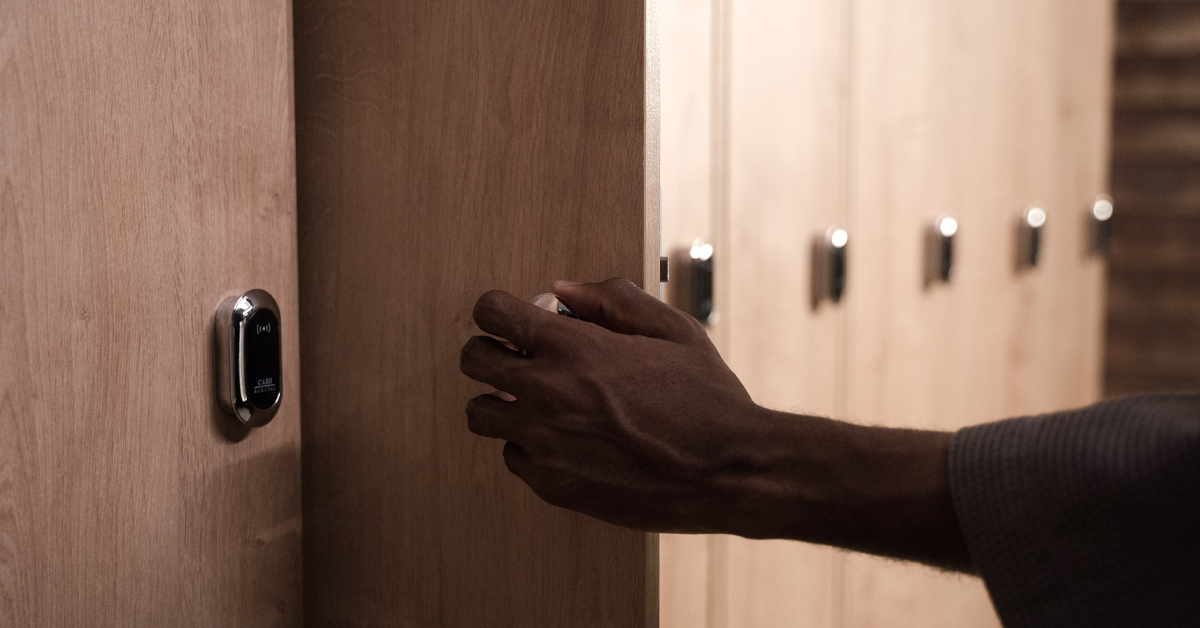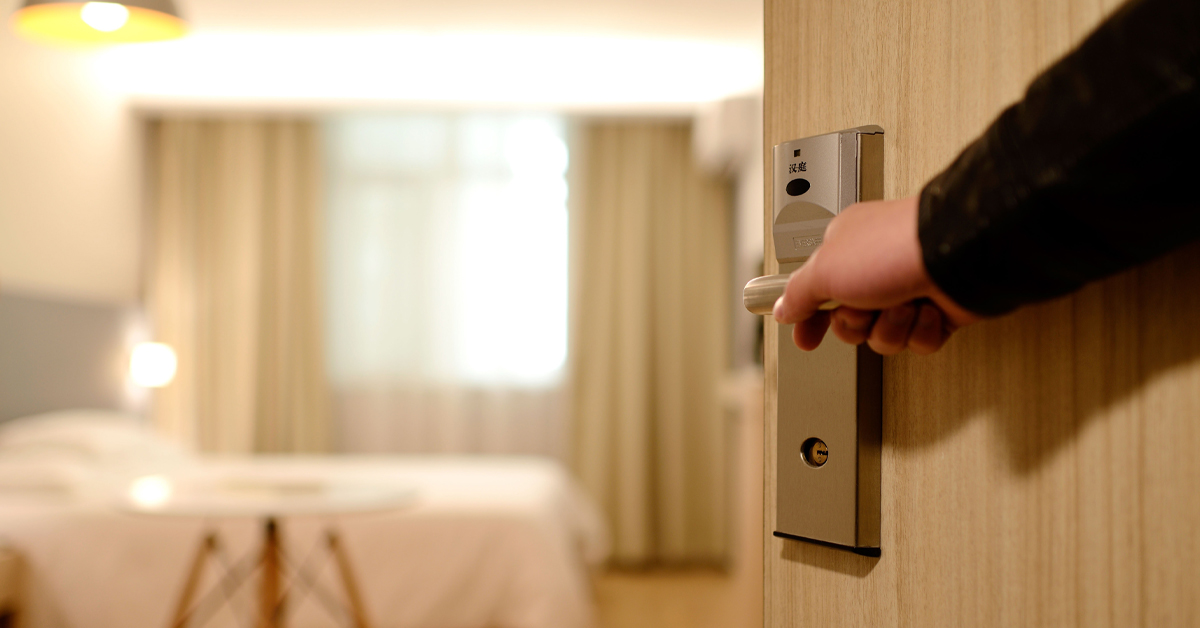“An increasingly frictionless stay experience” or “chatbots in hospitality” – a term that has been much-used in 2019 hospitality trend predictions and essentially refers to an increasing preference for less intrusive communication between hotels and guests (texting the reception rather than calling), a very high level of personalized service (restaurant recommendations based on a guest’s likes and dislikes) and slick operational efficiency (dealing with requests for extra towels or wake up calls with a click of a button rather than a phone call).
This does not mean the end of human interaction. Hoteliers must strike the right balance between keeping up to date with technology, meeting guests’ expectations and delivering consistently exceptional service. This is where chatbots in hospitality come into play.
The disruptive power of chatbots should not be underestimated. Savvy hoteliers who effectively integrate them into their digital strategy can expect to enjoy benefits such as a reduced reception workload, more direct bookings, higher customer engagement, more accurate guest profiling and increased guest loyalty.
Table of Contents
Intelligent hotels

Having an intelligent hotel that surpasses customer expectations is the strategy many modern hospitality leaders are considering. What adds viability to this is the idea of making it all enhanced with AI-powered care, support and service. Let’s discuss certain essential elements that make hotels intelligent.
- Concierge robots
- Digital assistance
- Voice-activated services
- Travel experience enhancers
- Automatic data processing (machine learning)
From customer’s personal choices to their smallest of needs, AI-powered chatbots can offer minute service and careful assistance.
Chatbots in hospitality for the competitive edge

The use of chatbots in the hospitality industry is still evolving. It currently covers a wide range of hotel services such as bookings, customer service inquiries, pre or post-stay inquiries and general travel advice.
Chatbots allow customers to research and book travel using different messaging apps such as Facebook Messenger, Google Assistant, Slack, WeChat and more. The main purpose of integrating a chatbot is for hotels to aid their guests who are sending inquiries on their communication channels such as a Facebook page.
Automation and self-service play an essential role in improving customer service in terms of accuracy, cost-effectiveness and speed.
Customers are now technology savvy and they love having all information they need at their fingertips. A chatbot can help hotels convey information faster than a human customer service agent does.
How hospitality brands can use chatbots

With Facebook Messenger’s 1.2 billion monthly active users, messenger chatbots are excellent engagement tools and a must-have for hotel marketing. You should meet your customers where they are. And with over 2 billion Facebook messages sent between customers and businesses each month, here are a few examples of how brands can leverage chatbots for their businesses.
1. Before check-in
- Create Facebook ads targeting common hotel guests.
- Auto respond to Facebook comments using a messenger chatbot.
- Automatically grow leads with a contact list growth tool like Facebook post autoresponder.
- Send a message blast at the right time
- Offer coupons to those who abandoned their bookings using a messenger chatbot
- Segment your leads with attributes.
- Send reminders before check-in.
During check-in
- Ask whether the customer needs help with anything.
- Upsell hotel events and onboard meal offers.
- Send reminders before check-out.
After check-In
- Get feedback.
- Retarget customers.
2. Tailored promotions and guest profiling
Chatbots can increase your conversion rate by gaining valuable knowledge about your customers’ habits and preferences. Having this information can help you design offers that are tailored to their needs. This can give you an opportunity to create personalized offers that can lead to guest loyalty.
In addition, the data you gather from your chatbots can help enhance your services because you will know what your guests like and dislike, the latest consumer trends they are following and the information they have difficulty understanding.
Your hotel will be able to make personalized recommendations to guests that would improve customer experience.
3. Time and efficiency
Chatbots can attend to thousands of visitor inquiries and questions all at once. This is ideal compared to having human customer service agents who would answer the same inquiries and questions every day which can lead to low morale that causes inefficiency at work.
On the other hand, chatbots can attend to your customers immediately and efficiently which increases the chance of upsells and conversions.
4. No language barrier with chatbots
Creating a chatbot that can understand numerous languages so your guests can directly reach out to your hotel is one of the best ways to leverage them to your advantage.
Your guests can send their inquiries and questions without having to worry about not knowing how to speak your local dialect.
5. Provide a better booking process and system
Chatbots can provide a more personalized experience to customers. These chatbots simulate a more human-like experience of talking to a travel agent. The booking process starts by having their customers text their destination and stay dates, then the chatbot accomplishes the lengthy process of finding options and proposes the best ones to the customers through a messaging application such as Facebook Messenger, WhatsApp, Slack and so on.
6. Provide recommendations and taking in requests
Most guests look for recommendations in your local area and your chatbot can find out what kind of things they love to do and can offer them a more personalized suggestion.
In terms of requests for services like asking for wake-up calls, room service and requesting a ride, they can easily send such requests through a chatbot and get what they want without having to dial a number or wait on the line.
7. Manage your guest stays
Chatbots can manage your guest’s stay at your hotel from check-in to check-out. Send your guests notifications and helpful updates related to their stay. An example would be sending them a reminder of their reservations like dinner, spa, city tour and even fun activities during their vacation. You can even utilize it to secure an additional or extended room booking for your guests if needed.
8. Exhaustive care with mobile apps
A number of hotels treat customers with smart controls as they arrive. A dedicated mobile app empowers customers’ stay, giving them the luxury to unlock their room, adjust room temperature, order drinks and many other things using their smart mobile phone.
Here, chatbots intervene as a vital key to customer service. Hotel guests can use hotel’s special mobile device to interact with chatbots to perform all relevant tasks.
- Ordering meals or drinks
- Suggesting special dishes
- Controlling room temperature and lighting
- Scheduling dinners/lunch
- Managing evening reservations
- Taxi booking and itinerary planning
- Recommending interesting sightseeing and visits
- Answering critical queries
9. Intelligent travel companions
Hotel operations often get complicated due to heavy amounts of data about visitors and hotel staff, resulting in critical challenges related to flawless customer experience. This is where intelligent chatbots can come to assist.
As soon as a guest enters their room, the chatbot can assist them amazing features.
- GPS capabilities
- Gamification and amusement
- AI-powered in-built hotel app
- Access to unlimited data and international calls
- Handy travel guide to city attractions
- Promotional offers
- Return travel booking services
- Quick access to hotel service assistants
10. Stay connected after their check-out
Chatbots can ask for feedback from your guests after their checkout. Chatbots can send feedback forms to guests along with some incentives for filling them out. This is an excellent way to encourage them to book at your hotel for their next trip to town.
Reasons to bot up
- Helps enhance guest communications
- Provides 24/7 smart assistance and communication gateway
- Reduces workload for your staff
- Helps improve your profiling system and boost your brand loyalty
- Increases booking conversions and avoids abandonment
- Improve overall customer service experience
- Automates repetitive admin tasks helping your staff focus on improving your guests’ stay experience
Leading by example – Hotels leveraging chatbots
1. Clarion Hotel in Stockholm
Clarion Hotel Amarante in Stockholm uses the AI-enabled chatbot butler which is an in-room assistant based on Amazon Echo. This assistant is equipped with powerful features and is designed to help guests with many of their requirements such as hailing cabs, ordering room service, laundry services, and other hotel-related operations.
2. Cosmopolitan of Las Vegas
Cosmopolitan in Las Vegas has incorporated AI-powered concierge bot called Rose. The bot gives visitors the facility to request for any hotel services using their voice. Rose manages queries precisely and conveys unknown queries to hotel staff. Rose ushers you to entertainment options and local sites and specialties of the hotel.
3. Henn na Hotel, Japan
Henna na Hotel of Japan is the first hotel to be known for its robots porters. These robotic porters carry the luggage of the visitors to the respective booked rooms.
4. Wynn Las Vegas
Las Vegas is known for its world-class luxury and opulent hotels offering exceptional customer experience. Wynn Las Vegas has made an announcement saying that it will integrate Amazon Echo to digitize its rooms in order to offer visitors access to multiple facilities by using their voice command. Be it switching off AC, TV, room lights, everything by just a mere voice of theirs.
5. Edwardian Hotels
Edwardian Hotels offer AI chatbots for their guests. They can utilize hotel’s chatbot services by typing the text message: “Edward”. Edward can guide visitors to local restaurants, bars, famous spots and can also handle their complaints.
Chatbots have already become a scalable technology for providing the best customer experience and retaining loyal customers in the travel and hospitality sector. The AI technology from personalized concierge services, real-time travel recommendations, and quality service management has come far beyond mobile apps, a breakthrough in the field of innovative technology.
The future is bright or is it bot filled?

Looking into the not-so-distant future, it is conversational hospitality that is going to be the buzzword. We are going to see a shift in the way in which businesses in hospitality interact with their guests.
The emphasis is going to be on digital-centric and convenience-driven communication, via tools that combine the intimacy of human-to-human interaction with the efficiency of machines.
As voice recognition technology continues to grow and as users continue to become more comfortable using it, chatbots are likely to evolve to be more voice-based than text-based.
In the future, one of the major developments is likely to be improved language translation through voice recognition, allowing anyone, anywhere in the world, to communicate with a chatbot verbally, be understood and receive a reply in the language they understand.
[mailerlite_form form_id=1]
















